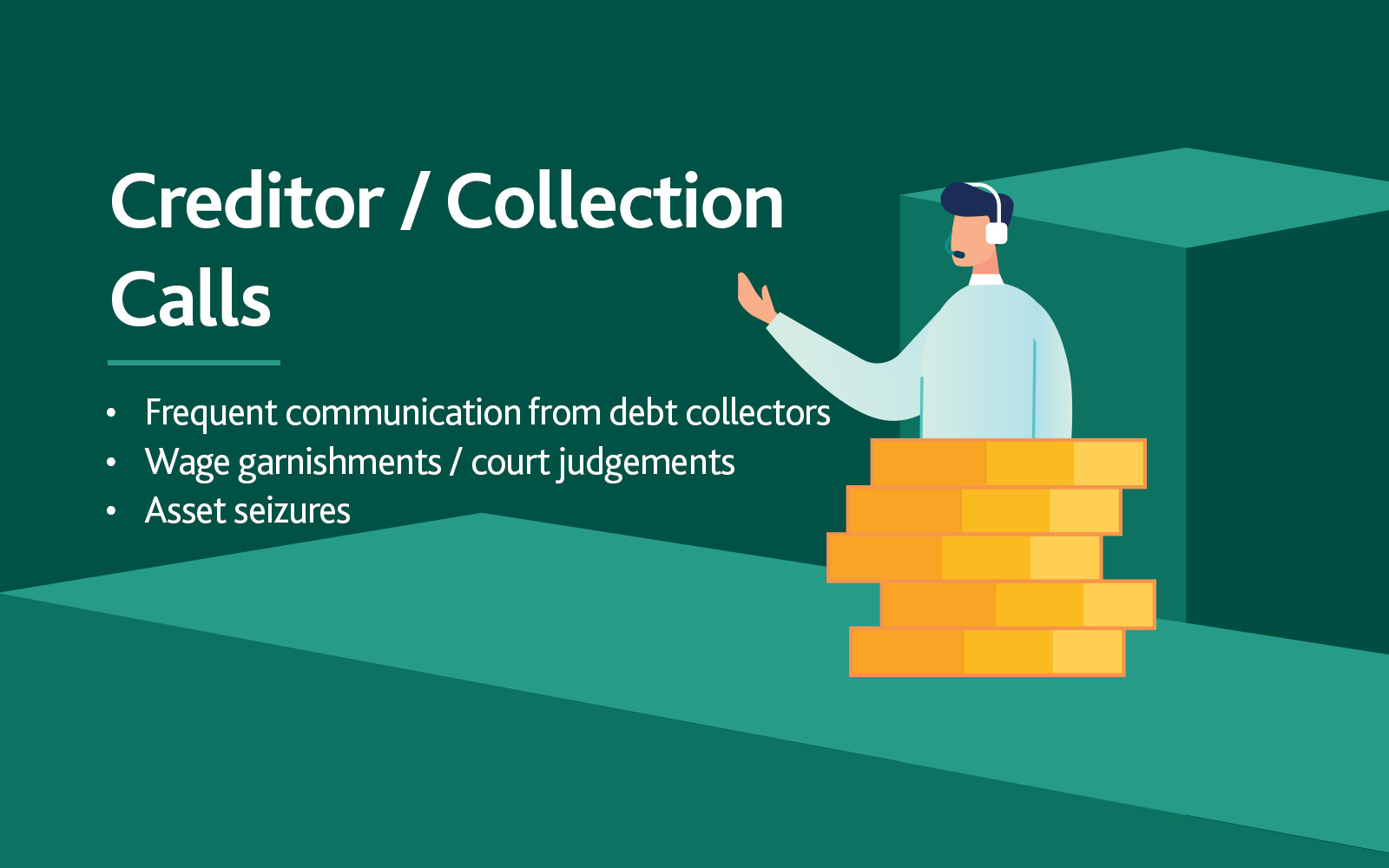Managing debt repayment when you’re struggling financially is extremely stressful on its own, but when your creditors start to take a more aggressive approach and enlist the services of a collection agency, that stress can intensify quickly. Having a debt sent to collections not only means more calls or letters, it will also have a negative impact on your credit score. You can minimize this impact by addressing it as soon as possible.
What to do
Know your rights as a consumer and learn how to respond to debt collectors so that you can ensure you are being treated respectfully and fairly. There is a wealth of information available online through the Financial Consumer Agency of Canada, your province’s government website on consumer protection or collector’s rights, and Canada’s two major credit reporting bureaus, Transunion and Equifax.
To protect yourself as a consumer and before you give the caller any information about yourself, ensure that you request the following information from the debt collector, in writing, if you have not yet received any physical correspondence:
- The name of their agency, their phone number, and the contact info for their representative contacting you
- Who they’re collecting for (your original creditor), the account number, and the amount of the debt
- A copy of the initial notice from the collection agency if not received previously
- The date that the debt relates to, as provincial legislation prevents debt collectors from taking legal action to recover the debt if the debt falls within a certain timeframe set out in your province’s limitation period.
To prevent any fraudulent activity from potential scammers, do not give your Social Insurance Number (SIN) to any agency that says at the beginning of the call that they need you to prove who you are. They are the one calling you, so it is them who needs to prove who they are by confirming your account details with you. If anyone is asking for your SIN number, hang up.
It’s important that once you receive the collection agency information in writing, that you then review your personal bills and bank statements to ensure this is a legitimate collection attempt.
Once you have established that the debt is yours, you can begin to make arrangements with the collection agency to pay it. Ensure that any monthly agreement is acknowledged in writing. Do not send cash, and be sure to request a mailed or emailed receipt for any payments made electronically or by cheque.
Most people don’t have the ability to pay a debt in full, so most agencies are willing to work out a monthly repayment plan that fits your budget.
In some cases, you may be able to negotiate an informal settlement for a lower amount if you are able to make a lump sum payment. This may have a negative impact on your credit score; however the credit hit may benefit you more than the stress of an extended repayment plan with more potential interest costs.
If you have been the recipient of collection activity for a debt that is not yours, notify the collection agency of this in writing and request that they update their internal records and correct any external reporting with the two credit bureaus, Equifax and Transunion.
If the debt collectors are using threatening or harassing methods to contact you, your employer, or family members, or are contacting you outside the legislated periods as prescribed in the applicable legislation for your province of residence, you can file a formal complaint with your provincial consumer protection agency.
MNP is here to help
Licensed Insolvency Trustees (LITs) can not only provide information on how to deal with debt collectors, but they can also work with you to incorporate a formal plan which includes a stay of proceedings preventing collection attempts on debts you simply cannot afford to pay. If you’re experiencing collection actions and the stress that comes with them, don’t hesitate to contact your local MNP Debt office — the initial consultation with an LIT comes at no cost.



